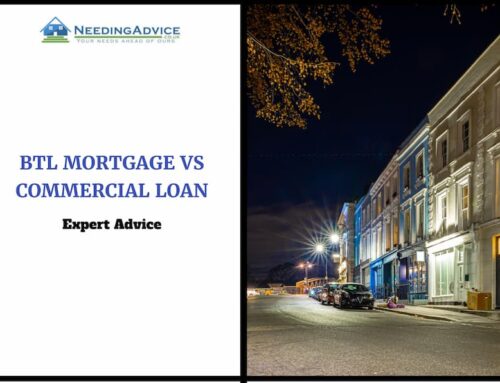A commercial mortgage warehouse is a type of property finance used to purchase or refinance warehouse or industrial units for business use. Whether your business needs space for storage, logistics, or light manufacturing, securing the right form of commercial property finance is essential for growth and long-term planning.
This guide covers everything you need to know about warehouse mortgages, including how they work, eligibility criteria, lender expectations, and associated terms.
This article was last updated on 18 June 2025. The Financial Conduct Authority (FCA) does not regulate commercial mortgages. Commercial mortgages are available by referral only. Bridging loans are also available through referral only.
What Is a Commercial Mortgage for a Warehouse?
A commercial mortgage for a warehouse is a loan secured against a property used primarily for business purposes. These properties may include self storage units, factory units, distribution centres, or mixed-use industrial premises.
Lenders offer this type of mortgage to companies seeking long-term funding for business premises or property investment. Some mortgages are designed for owner-occupiers, while others are structured for property investors seeking buy-to-let mortgages or investment mortgages.
Suitable Properties and Businesses
Warehouse mortgages may be used to finance:
- Owner-occupied commercial premises
- Warehouses used for fulfilment, storage, or production
- Mixed-use or semi-commercial property
- Self storage units
- Retail units or light industrial sites
- Agricultural warehouses and factory units
- Manufacturing or distribution spaces
If you are purchasing a freehold property for your operations or considering buy-to-let properties for rental income, this type of mortgage can be tailored to suit your goals.
Who Offers Commercial Warehouse Mortgages?
Commercial warehouse mortgages are offered by banks, specialist mortgage lenders, and financial institutions. Some lenders offer green commercial mortgage products for energy-efficient buildings with high Energy Performance Certificate ratings.
You may choose to work with a whole of market mortgage broker who can assess your requirements and identify suitable mortgage products based on your business model and financial statements.
Key Lending Criteria and Terms
Lenders assess several areas before approving an application for a commercial mortgage warehouse loan:
Loan-to-Value Ratio
Lenders usually fund up to 70 to 75 percent of the property’s value. You will need to contribute the remainder as a deposit. For property refurbishment or property development projects, the deposit may be higher.
Business Profile and Financial Health
You must provide up-to-date financial statements, bank records, and business plans. If your business has strong performance metrics and a stable asset portfolio, it increases your chances of approval.
Start-up businesses or those with limited trading history may need to provide additional documentation, such as director guarantees or asset finance backup.
Tenancy Type and Occupancy Use
Lenders will ask whether the warehouse will be owner-occupied or let to retail tenants, blue chip tenants, or other commercial occupants. Tenant covenant strength and tenant quality are also considered for investment commercial mortgage approvals.
Interest Rate and Repayment Options
Rates vary depending on your business profile, the loan originator, and property type. Fixed-rate commercial mortgage deals are available, as are interest onlyA mortgage where the borrower only pays the interest on the ... mortgages with clearly defined loan repayment strategies.
Mortgage Options and Property Types
Commercial mortgage warehouse lending applies to:
- Investment property and commercial investment mortgages
- Owner-occupier mortgages for operational use
- Retail premises with attached warehouse space
- Portfolio mortgages for landlords with multiple assets
- Self storage mortgage lending for operators expanding their footprint
- Hotel property or hospitality warehousing operations
Loan terms typically range from five to twenty-five years. For development projects or factory unit conversion, shorter bridging loan solutions may be considered with exit strategies tied to resale or rental income.
Bridging Loan vs Long-Term Warehouse Mortgage
A bridging loan may be useful for:
- Acquiring property at auction
- Short-term financing during property refurbishment
- Temporary capital needs ahead of long-term mortgage approval
However, these loans carry higher interest rates and must be repaid within a shorter period. A commercial investment mortgage offers more stability for businesses investing in warehouse space.
Valuation, Fees, and Additional Considerations
You may need to cover:
- Property valuations
- Broker fees
- Legal fees
- Arrangement charges
- Loan Servicing Account setup
It is also important to factor in property costs such as business rates, insurance, and ongoing maintenance. Some lenders will conduct supply chain risk assessments, market analysis, and examine tenant types to evaluate long-term viability.
Frequently Asked Questions
Can I get a mortgage for a self storage warehouse
Yes. Self storage properties are eligible for warehouse mortgages, particularly if you are an owner-occupier or plan to generate consistent income through rental units.
Are commercial mortgage rates fixed
Some lenders offer fixed-rate mortgages for commercial properties, but many also provide variable or tracker options depending on your risk profile and funding needs.
Can I apply through a limited company
Yes. Limited company buy-to-let mortgages and business mortgages are commonly used for property investment or asset protection.
Can I buy a semi-commercial property with a warehouse
Yes, as long as the commercial use is clearly defined. Mixed-use mortgages are available for properties with both residential and commercial elements.
Is there a difference between owner-occupied and investment commercial mortgages
Yes. Owner-occupier commercial mortgage products are based on business use, while investment products focus on rental income and tenant covenant strength.
Speak to a Mortgage Adviser
If you are considering buying or refinancing a warehouse, retail unit, or factory unit, it is essential to get independent advice. Our team can help you explore the full range of commercial property finance options, including green commercial mortgage offers, bridging loan products, and fixed-rate commercial mortgage deals tailored to your needs.
You can read more about eligibility and options at NeedingAdvice.co.uk or explore:
- More commercial mortgage options
- Mortgages for limited companies
- Commercial mortgages for start-up businesses
- Investment and buy-to-let property finance
Our advisers are authorised and regulated by the Financial Conduct Authority and appear on the Financial Services Register. Contact us today to begin your journey towards financial success in commercial property.






Leave A Comment